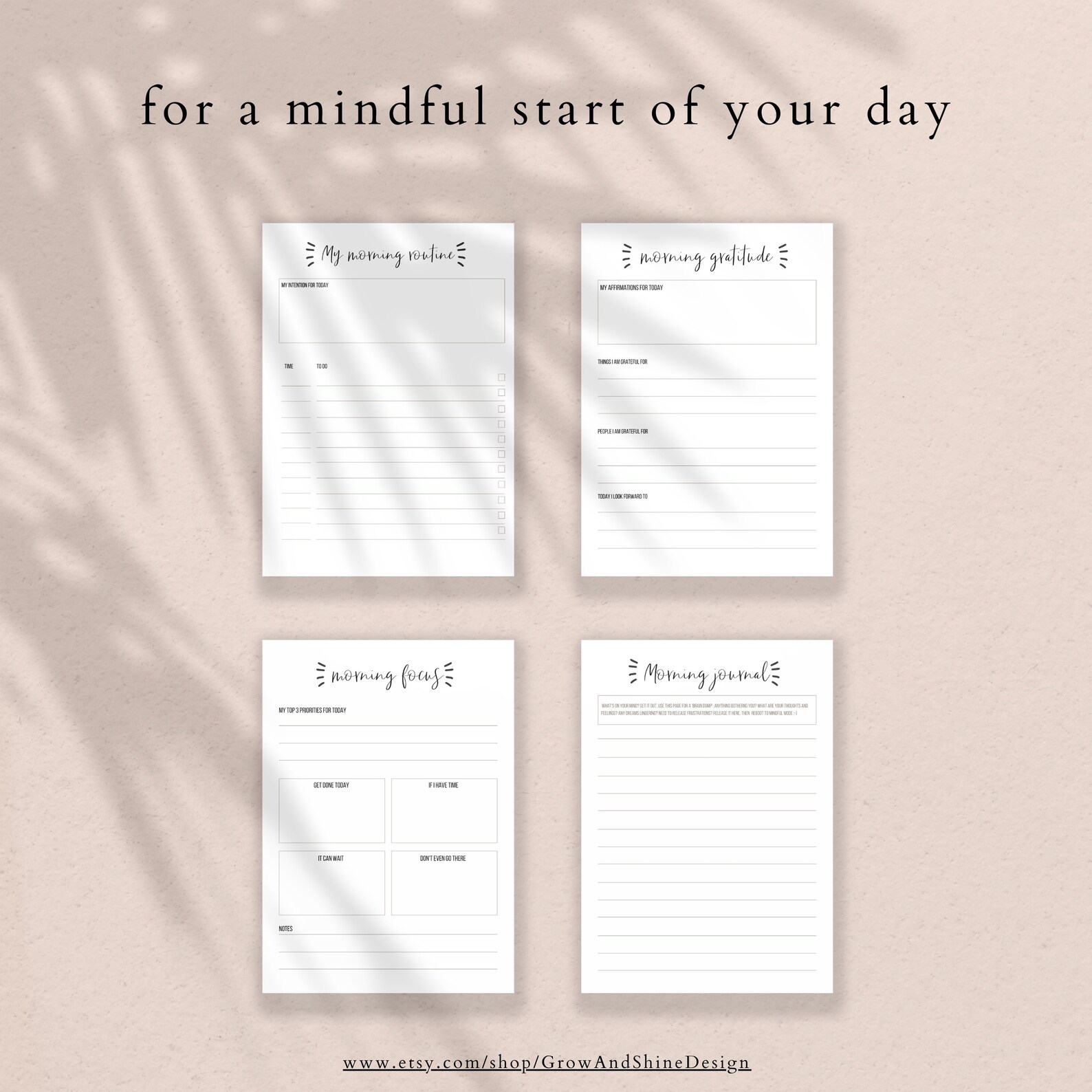

It’s where they would spend the next two years. On June 12, 1942, Anne Frank made her first entry to her famous, existentially essential diary, “I hope you’ll be a great source of comfort and support.” Twenty-four days after that first entry, Anne and her Jewish family were forced into hiding, in the cramped attic annex over her father’s warehouse in Amsterdam.
MORNING JOURNAL FREE
These improvements in turn free up our cognitive resources for other mental activities, including our ability to cope more effectively with stress Bring Your Problems To Your Journal Boosted Cognition - Research published to the Journal of Experimental Psychology found that reflective writing reduces intrusive and avoidant thoughts about negative events and improves working memory. Improved Sleep -The Journal of Experimental Psychology found that journaling before bed decreases cognitive stimulus, rumination, and worry, allowing you to fall asleep faster. A study by The Journal of Social and Personal Relationships found that writing “focused on positive outcomes in negative situations” decreases emotional distress. Writing reflects clear thinking, and in turn, clear communication. Improved Communication Skills - A Stanford University study found the critical relationship between writing and speaking. Participants asked to write about such events for 15–20 minutes resulted in improvements in both physical and psychological health. Another Study by Cambridge University found journaling helps improve well-being after traumatic and stressful events. As the researchers conclude, “Our results reveal reflection to be a powerful mechanism behind learning, confirming the words of American philosopher, psychologist, and educational reformer John Dewey: ‘We do not learn from experience…we learn from reflecting on experience.’” According to a study conducted by Harvard Business School, participants who journaled at the end of the day had a 25% increase in performance when compared with a control group who did not journal.

The scientific research to support journaling is extensive and compelling: The Benefits of Journaling The Science-Backed Benefits of Journaling

Listen to “The Art of Journaling” as read by Ryan Holiday: I. Learn more here and make sure to register before the live cohort begins on March 22nd! Along with 14 daily emails, there will be 3 live video sessions with bestselling author Ryan Holiday, one of the world’s foremost thinkers and writers on ancient philosophy and its place in everyday life. It’s a 14-day course that will equip you with the tools to live as vibrant and expansive a life as the Stoics.
MORNING JOURNAL HOW TO
If you want to take a deeper dive into Stoicism and learn how to apply the philosophy to your life, check out our most popular course, Stoicism 101: Ancient Philosophy For Your Actual Life.

You’ll learn not only how to journal, but also the about the benefits of journaling, the famous journaling of the past 2,000 years, the best journals to use, and more. Whether you’re brand new to the concept of journaling or you’ve journaled in the past and fallen out of practice, this ultimate guide to journaling will tell you everything you need to know to help you make journaling one of the best things you do in 2020 and beyond. It was, for them and so many others, as Foucault said, a “weapon for spiritual combat.” A way to practice their principles, be creative and purge the mind of agitation. Auden, Queen Victoria, John Quincy Adams, Ralph Waldo Emerson, Henry David Thoreau, Virginia Woolf, Joan Didion, John Steinbeck, Sylvia Plath, Shawn Green, Mary Chestnut, Brian Koppelman, Anaïs Nin, Franz Kafka, Martina Navratilova, and Ben Franklin. Journaling is not just a little thing you do to pass the time, to write down your memories-though it can be-it’s a strategy that has helped brilliant, powerful and wise people become better at what they do.


 0 kommentar(er)
0 kommentar(er)
